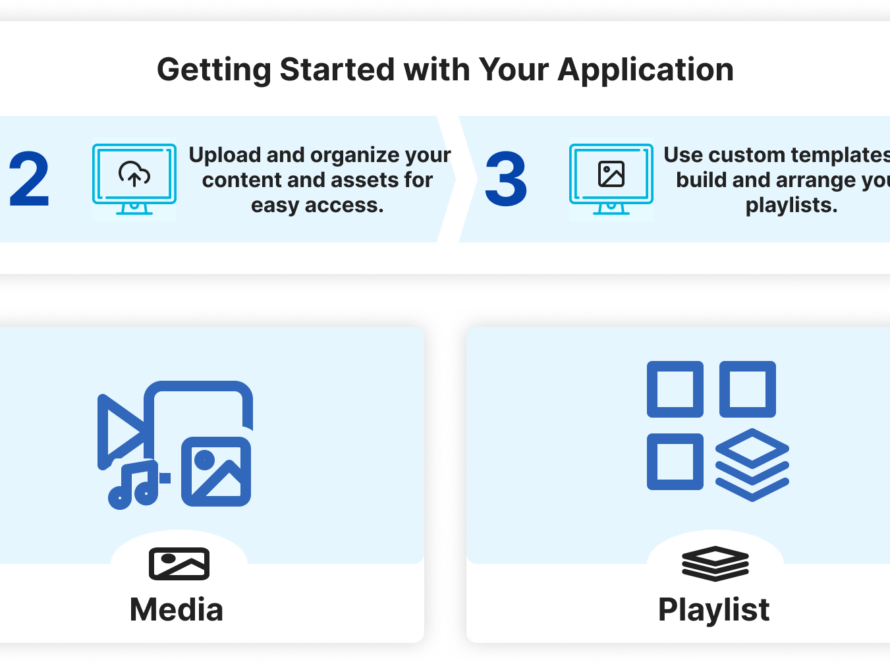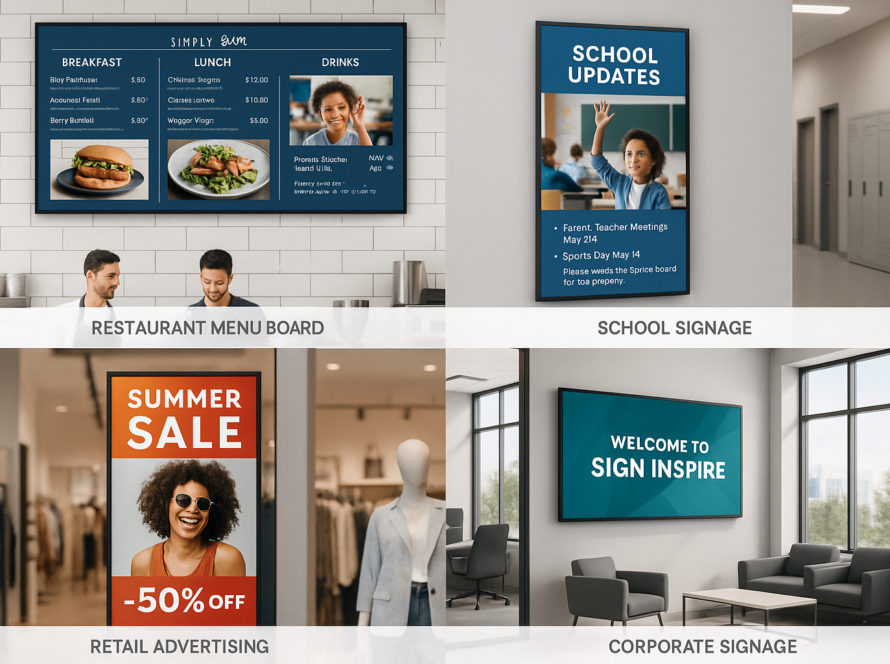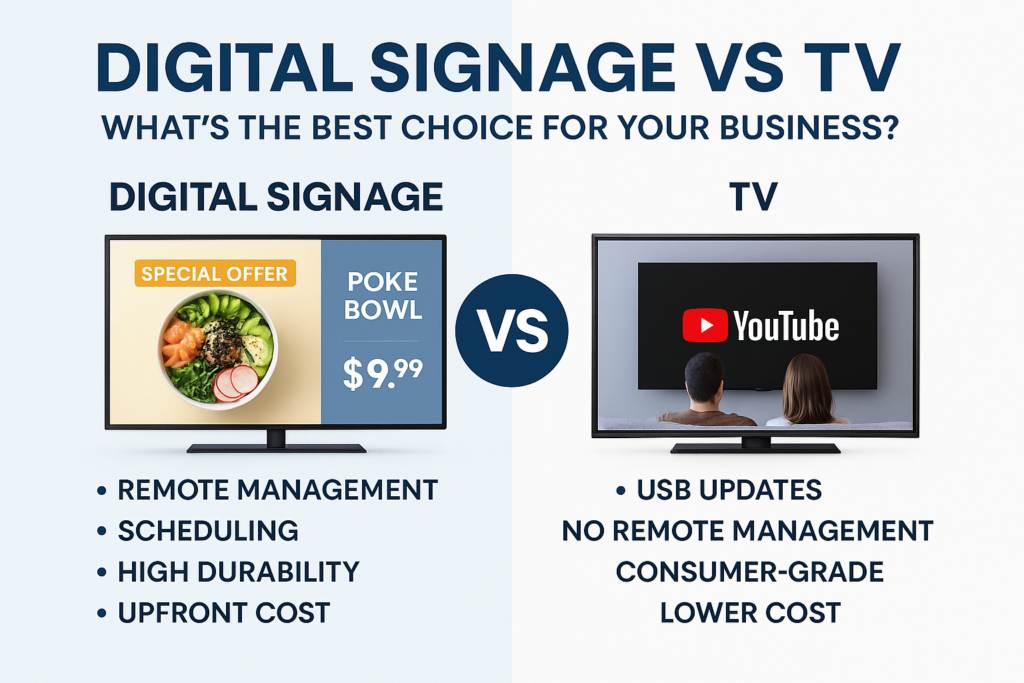
Digital Signage VS TV
When setting up screens in your business, one big question often comes up:
Should you use digital signage or just a regular TV?
At first glance, they might seem similar. Both are screens that show content. But when it comes to long-term use, flexibility, and business control, the difference is clear.
In this article, we’ll break down digital signage vs TV to help you make the right choice — especially if you want professional, reliable, and scalable display solutions.
📺 What Is a Regular TV Setup?
A regular smart TV is designed for home use — streaming content like Netflix, YouTube, or mirroring a device using HDMI.
Some business owners use TVs to play videos via USB sticks, PowerPoint loops, or casting from laptops.
⚠️ Limitations of TVs for Business Use:
No cloud content management
No scheduling or remote control
Requires manual updates via USB
Risk of screen burn-in from static images
Not designed for 24/7 display use
🖥️ What Is a Digital Signage System?
Digital signage is built for commercial use. It’s a cloud-connected screen solution that lets you upload, schedule, and control content — from any device, anywhere.
At Sign Inspire, our digital signage system includes:
A dedicated app for Android, webOS, or media players
A cloud dashboard to schedule and manage screens
AI-powered tools to generate or expand visuals
Support for restaurants, schools, retail, offices, and more
🧠 What Is the Difference Between Digital Signage and a TV?
Digital signage is a system built for business communication. It lets you control content remotely, schedule what appears on screen, and even update across multiple locations.
A regular TV, however, is designed for home entertainment — YouTube, streaming, HDMI input, and maybe USB slideshows. It has none of the software or scheduling tools you need for business use.
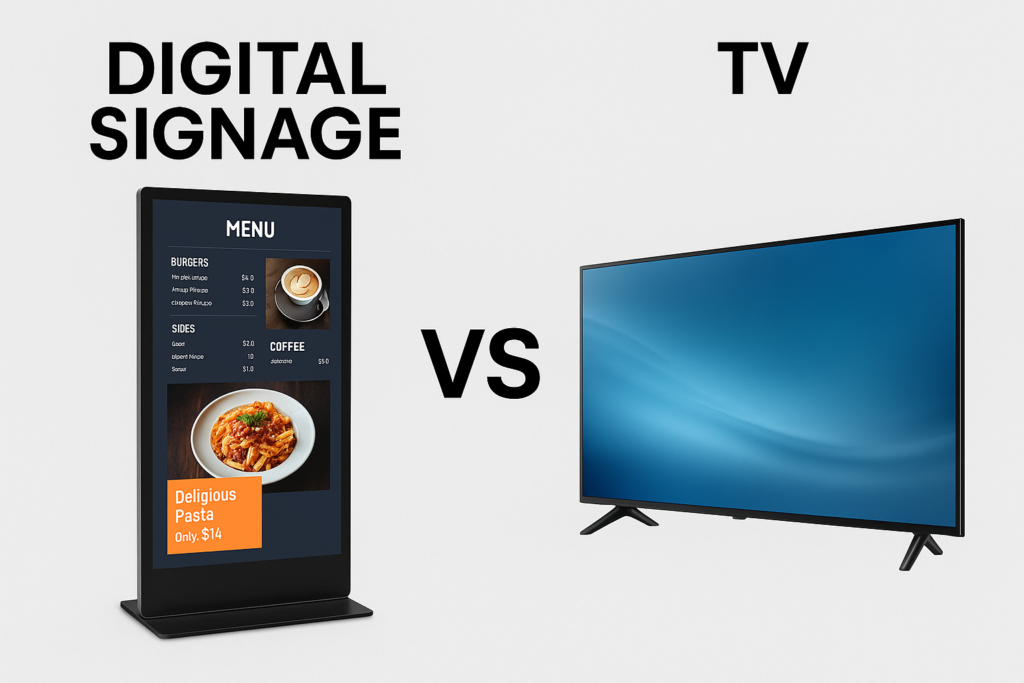
| Feature | Regular Smart TV | Digital Signage System |
|---|---|---|
| Content Management | Manual | Cloud-based dashboard |
| Updates | USB or casting | Instant remote updates |
| Scheduling | No | Full day/time scheduler |
| Multi-location Control | No | Yes |
| Branding Tools | None | Templates, AI visuals |
| Commercial Usage | Not ideal | Purpose-built |
| Screen Lifetime | Lower | Higher-grade durability |
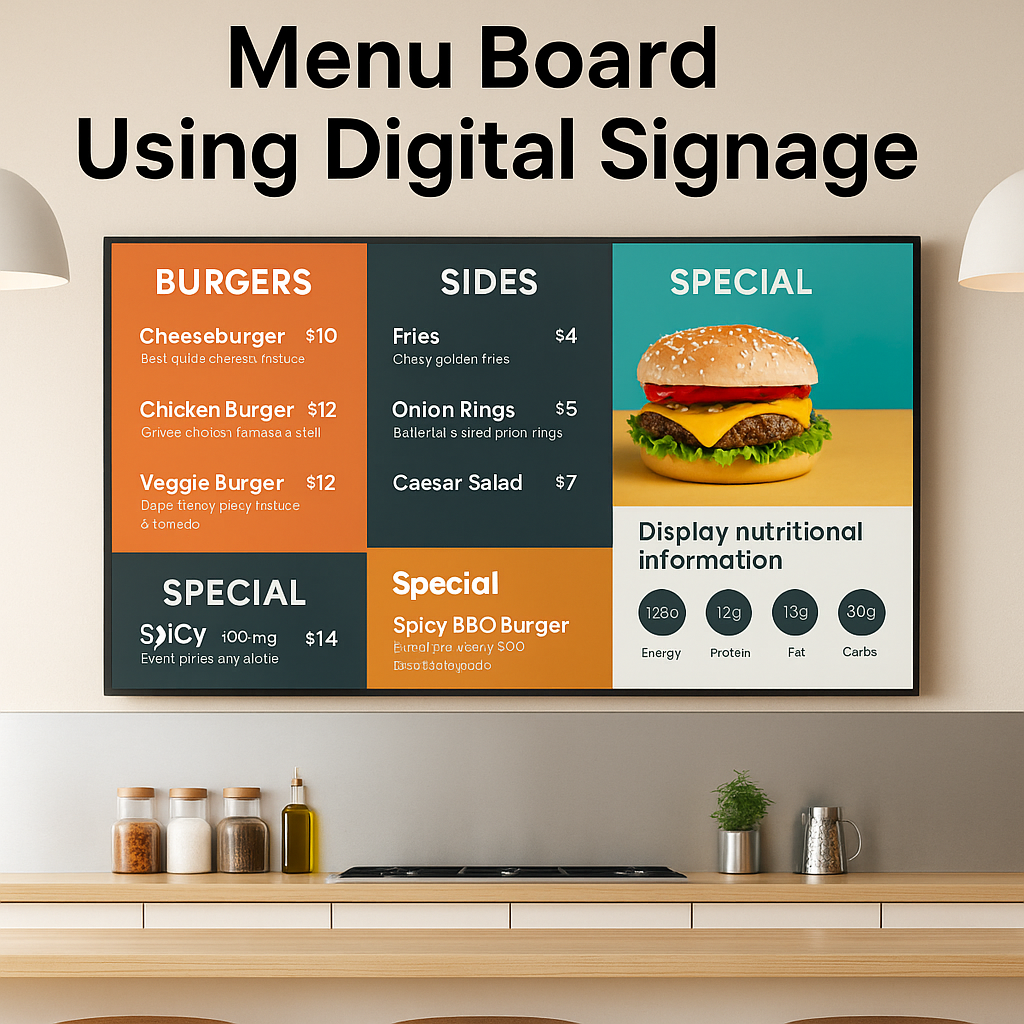
💼 Use Cases Where Digital Signage Shines
Restaurants: Dynamic menu boards, promotions, allergy info
Retail Stores: Sale announcements, seasonal ads
Gyms & Studios: Class schedules, trainer bios
Offices: Dashboards, welcome messages
Schools: Event notices, campus alerts
In all these settings, using a smart TV alone just isn’t enough.
💡 Why Businesses Upgrade from TV to Digital Signage
Here are 3 big reasons:
Time-Saving: No more USB uploads — content updates in seconds
Professional Appearance: Better design templates, AI visuals
Scalability: Easily add more screens and manage them remotely
Want to learn how to install our app? Read our digital signage installation guide.
💸 Cost Consideration
A basic TV is cheaper upfront — but over time, manual content changes, lack of remote access, and hardware wear can become costly.
Digital signage systems (like Sign Inspire) offer:
Affordable subscriptions
Free AI content tools
Local support
No need to upgrade screens frequently
💡 Tip: Use an existing TV with a low-cost Android media player to get the best of both worlds.
✅ Try Sign Inspire Today
Turn any screen into a smart digital signage system with Sign Inspire.
It’s quick to install, cloud-based, and free to try.


